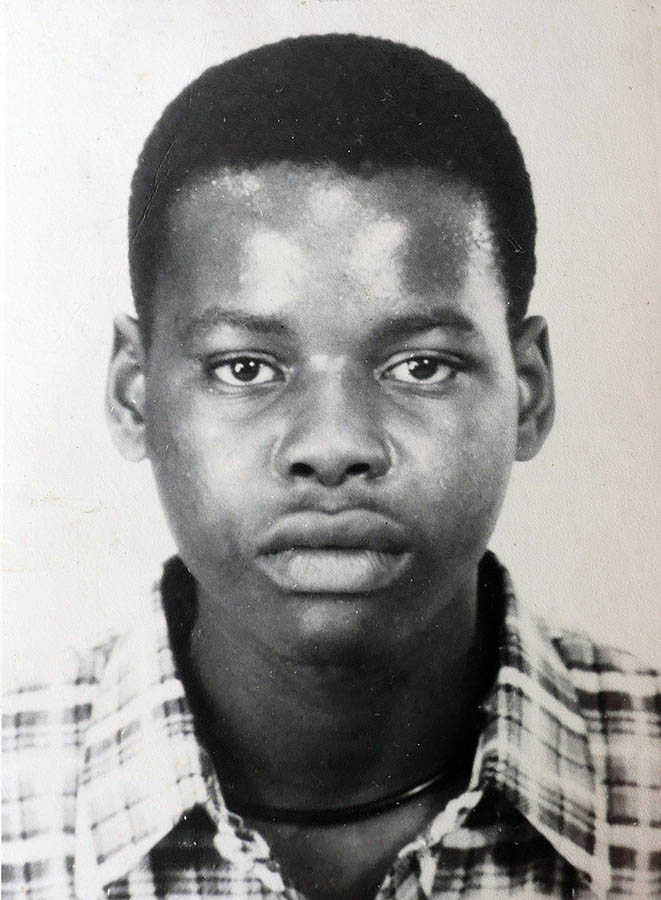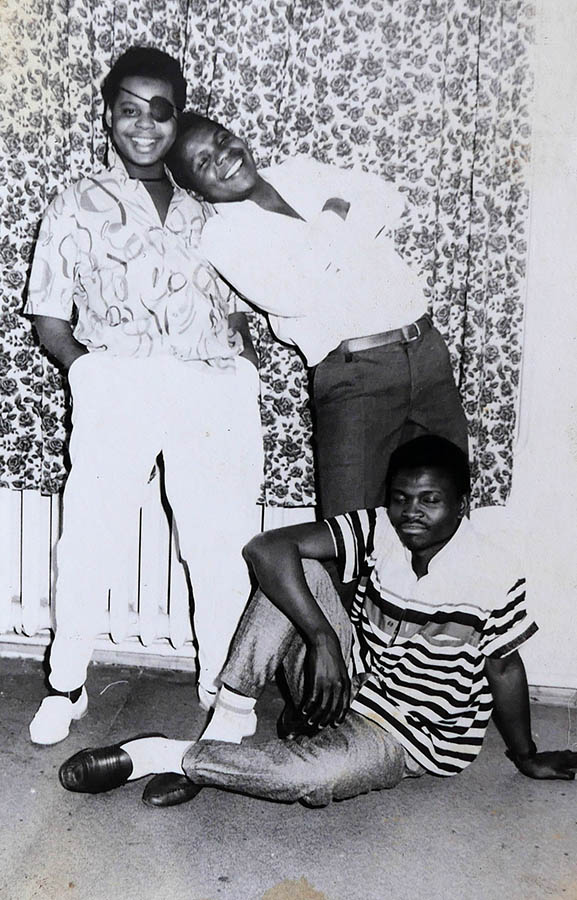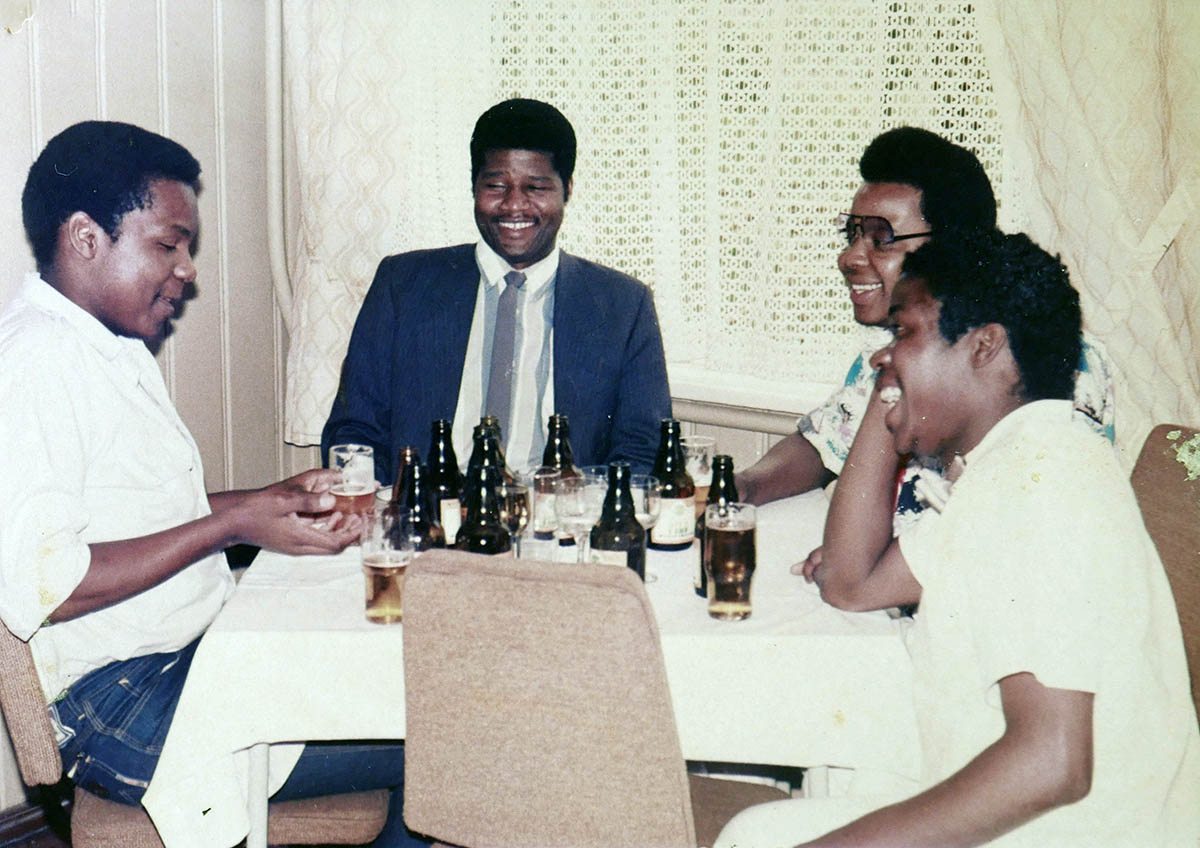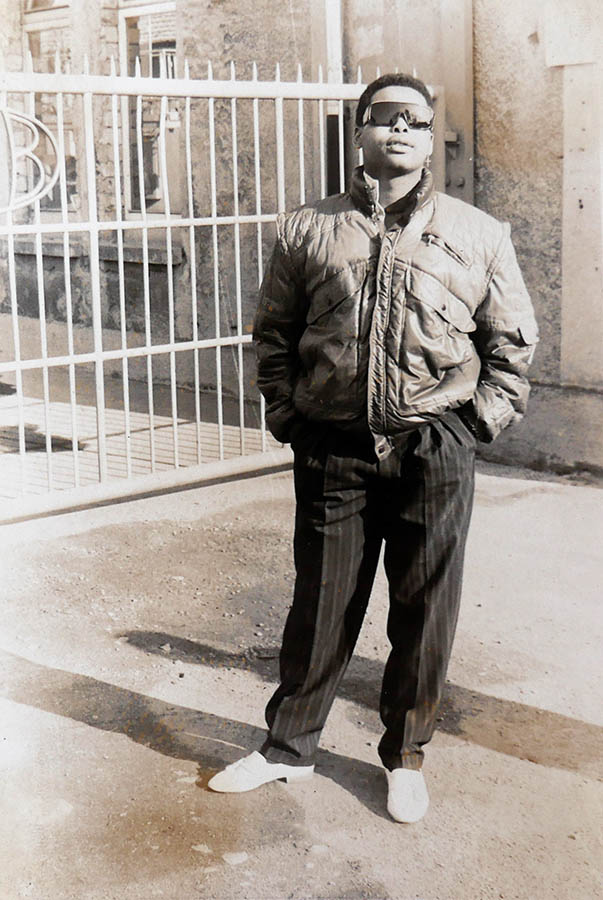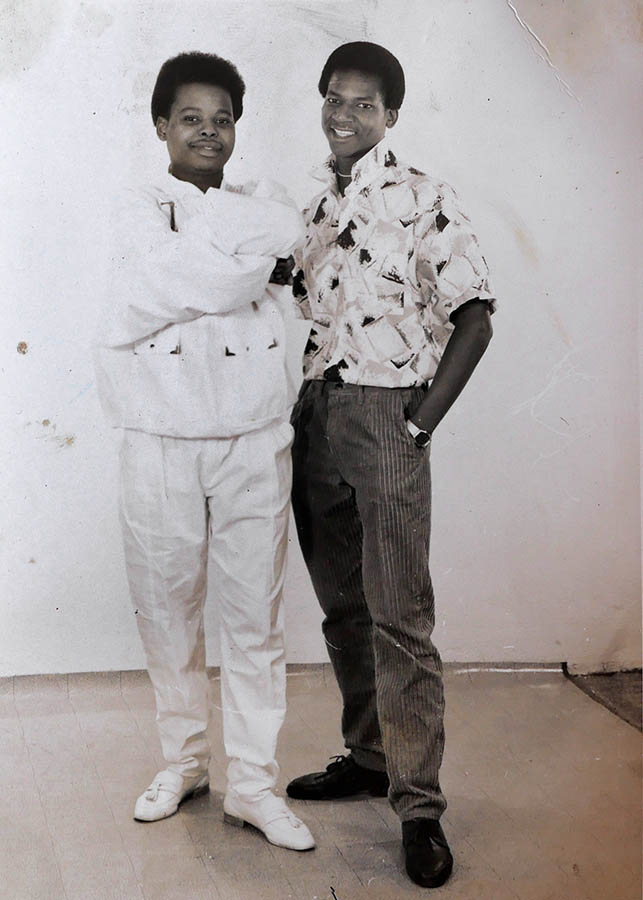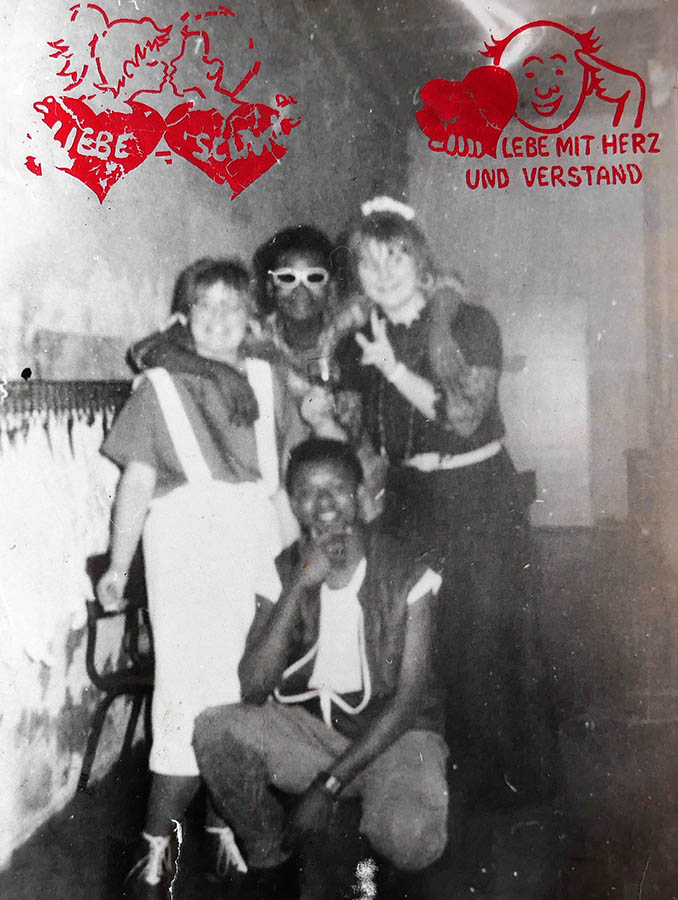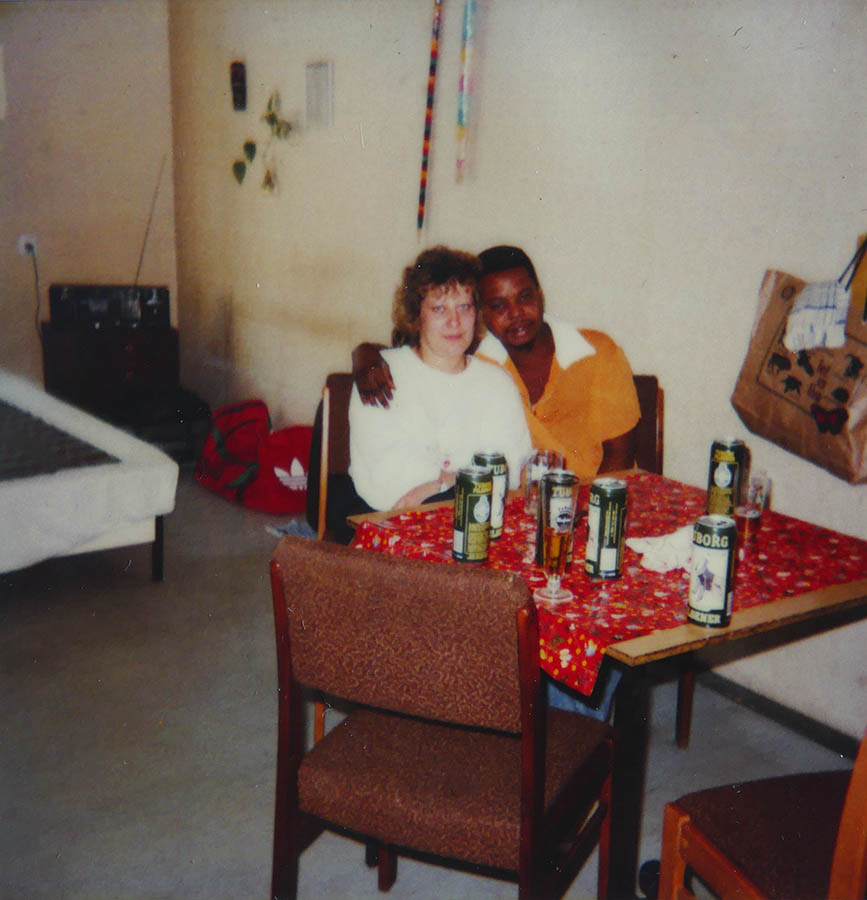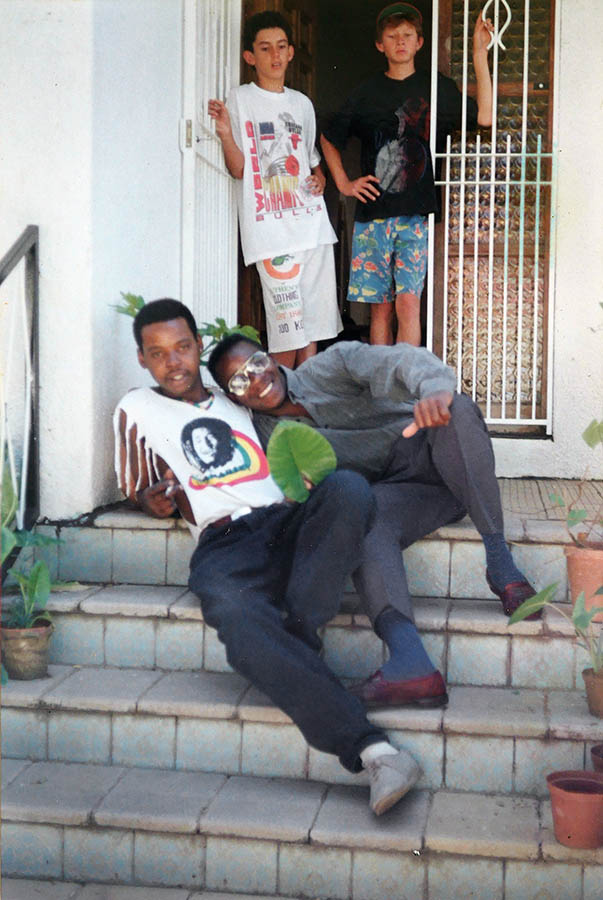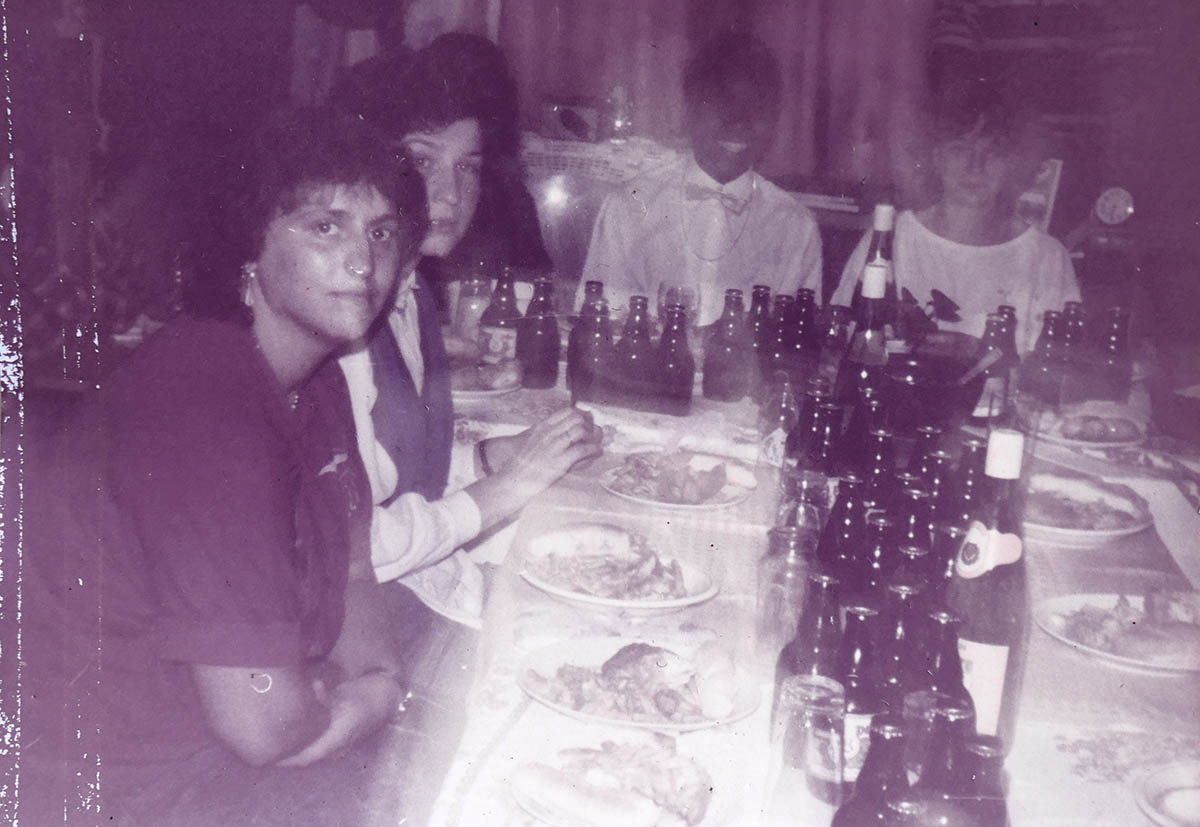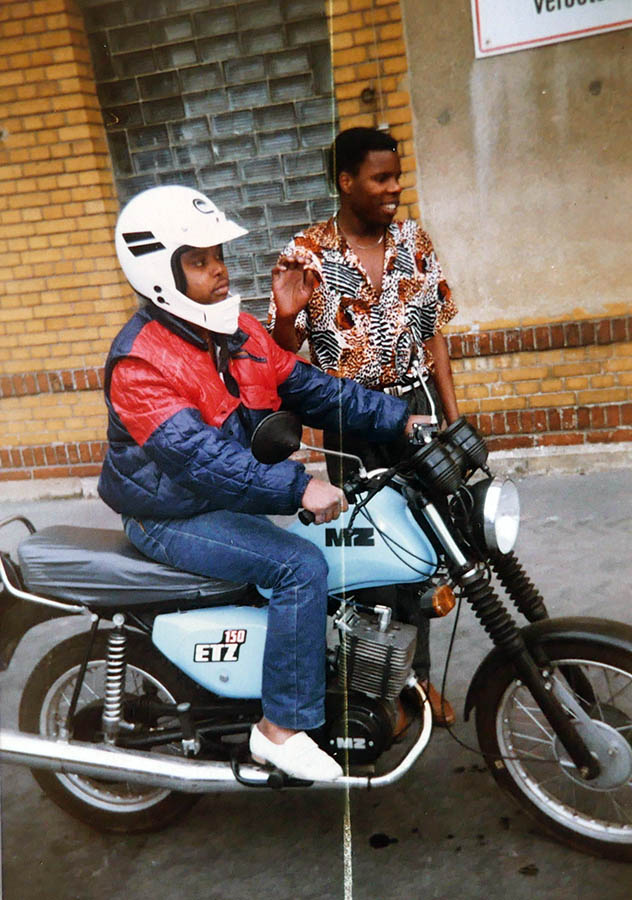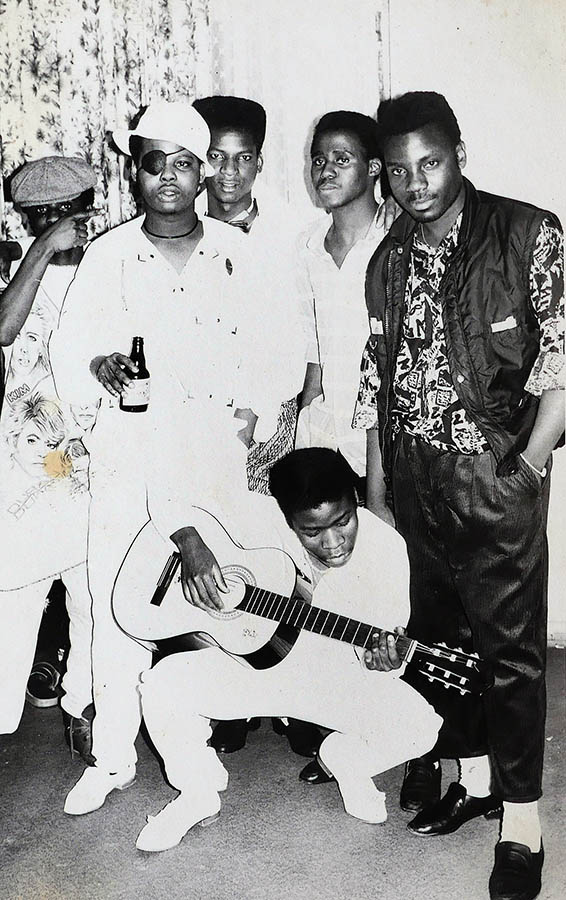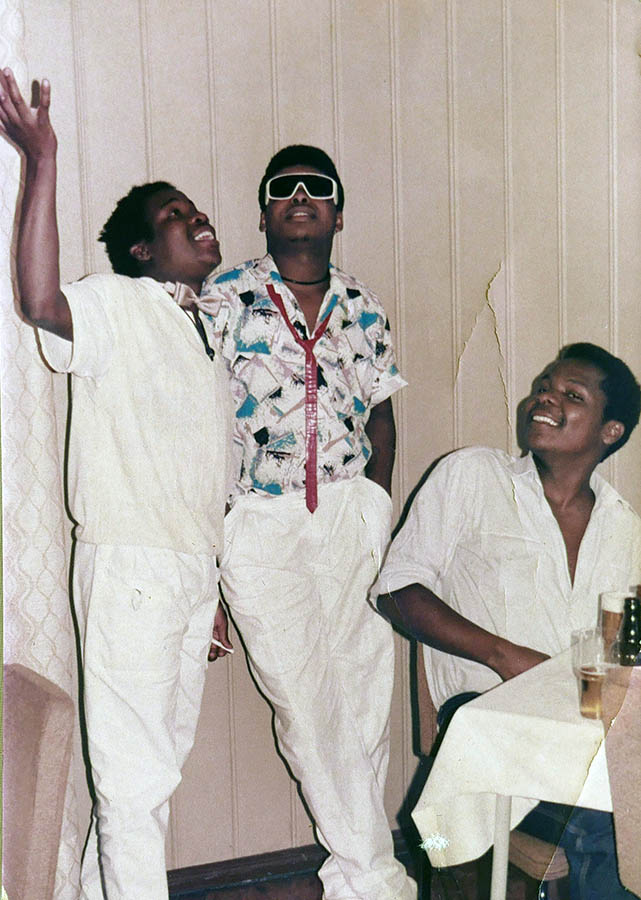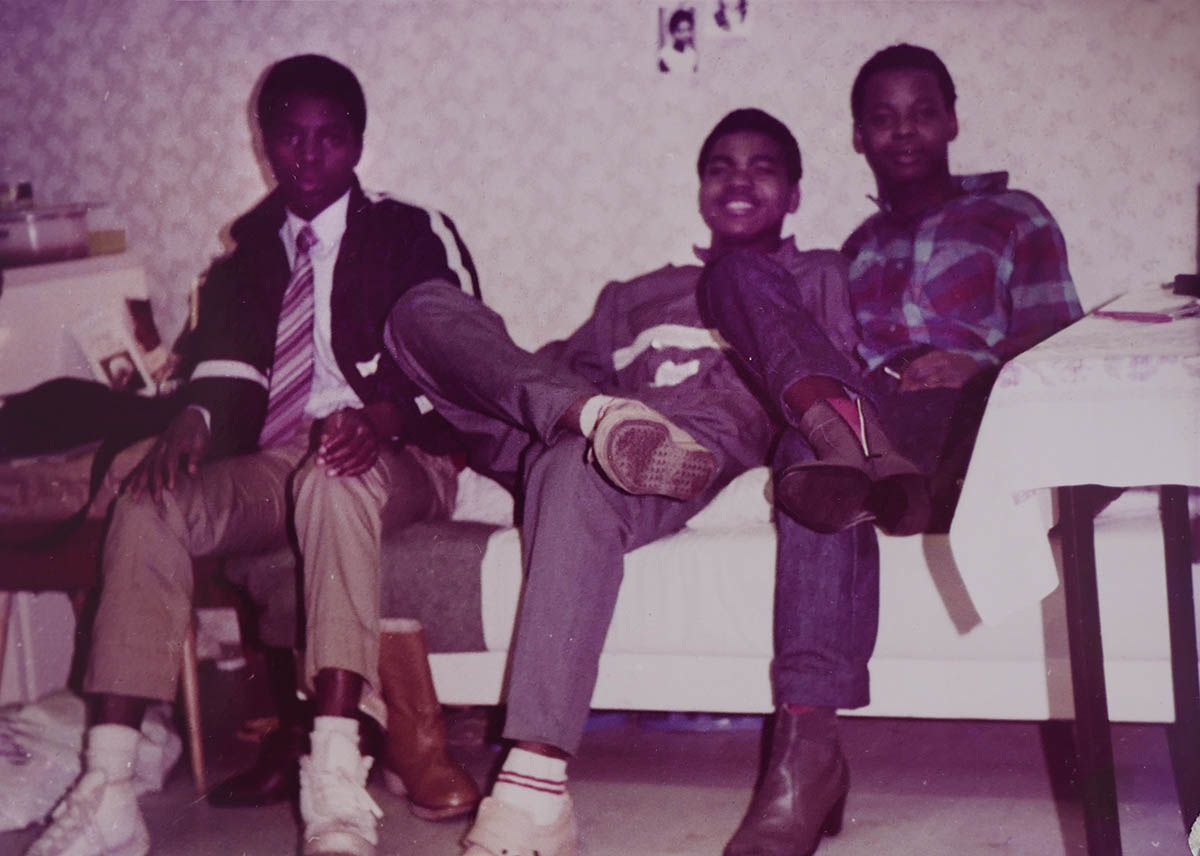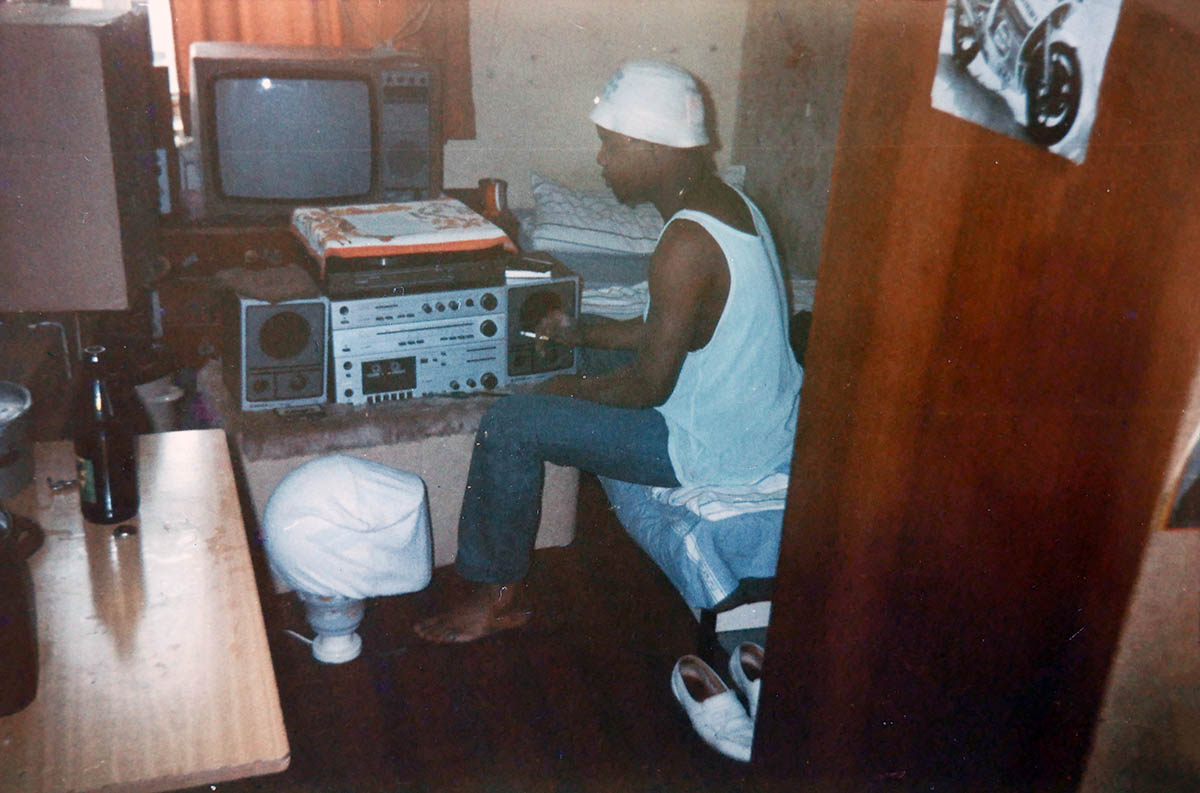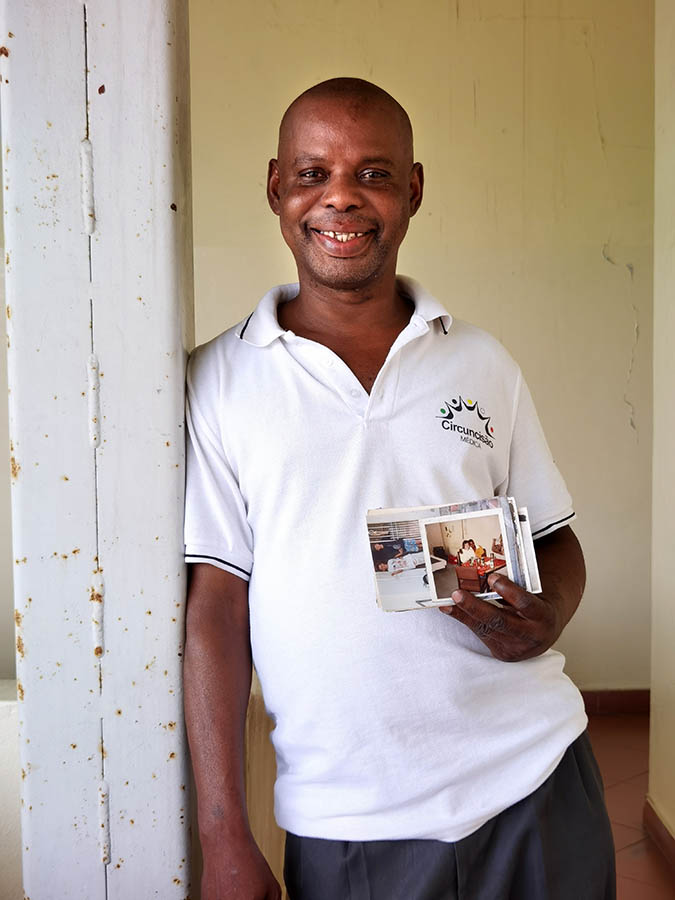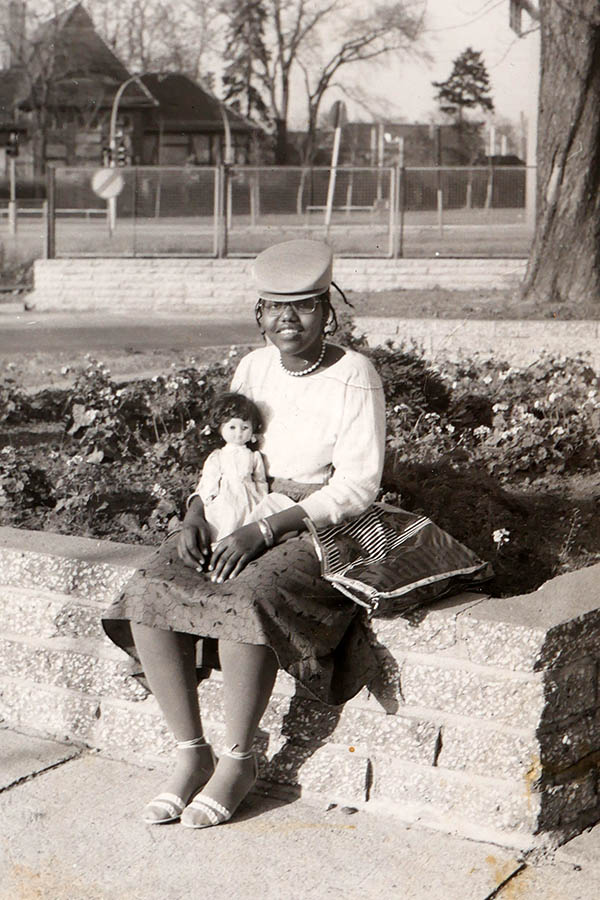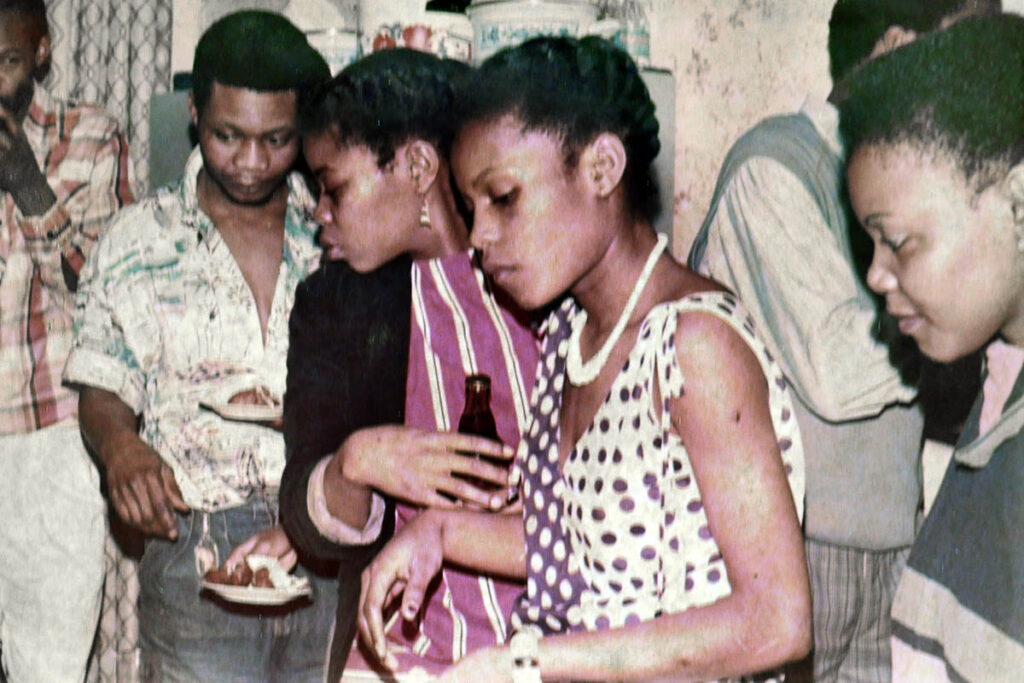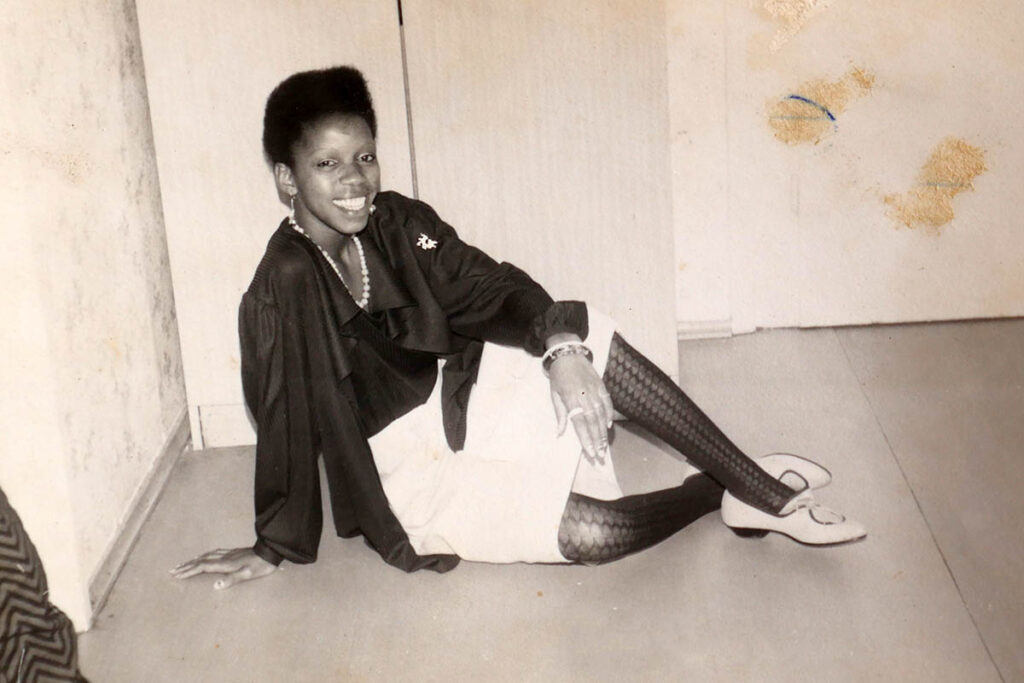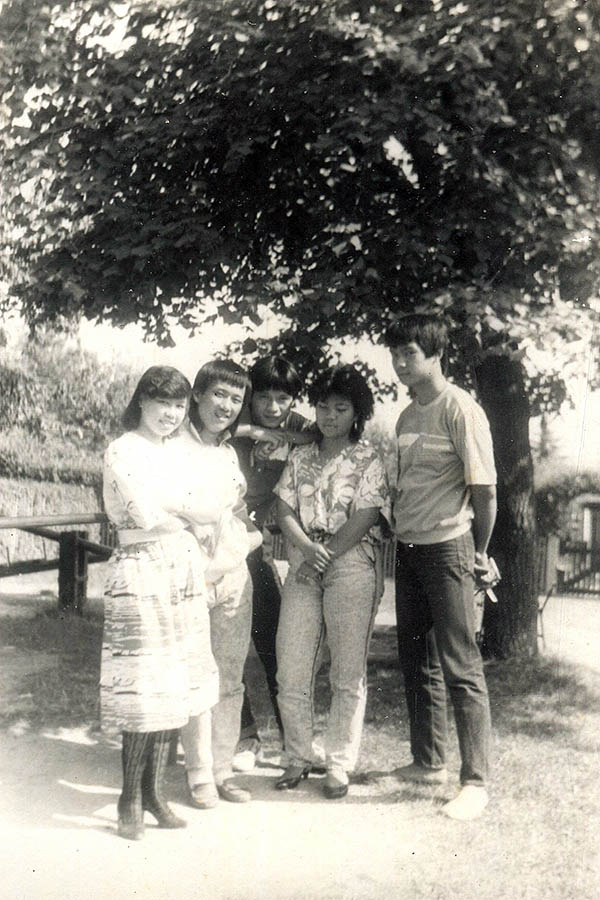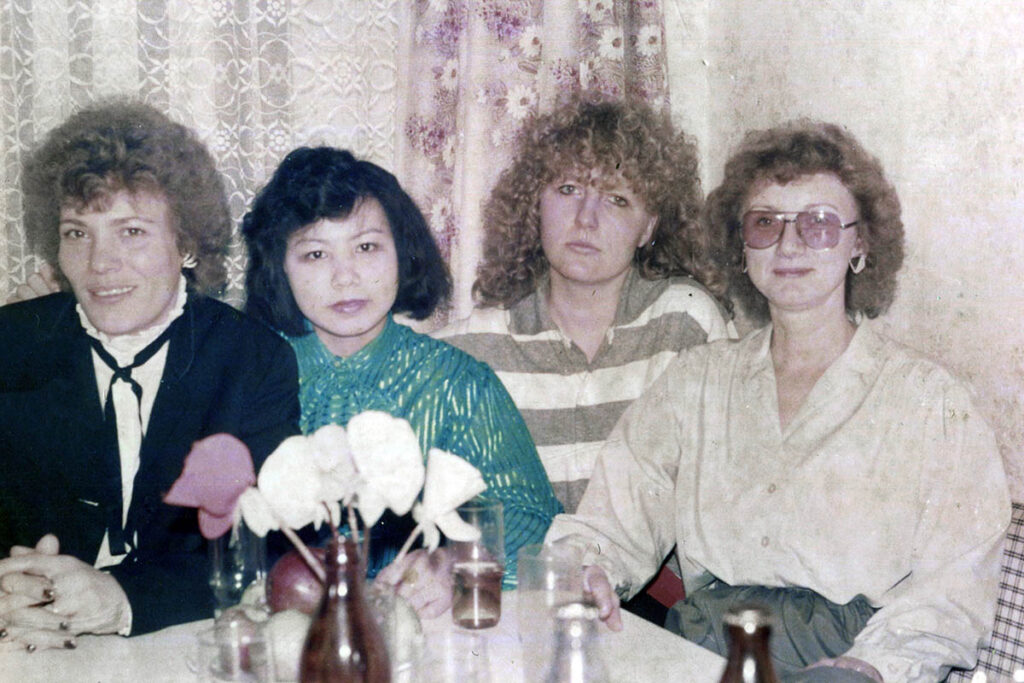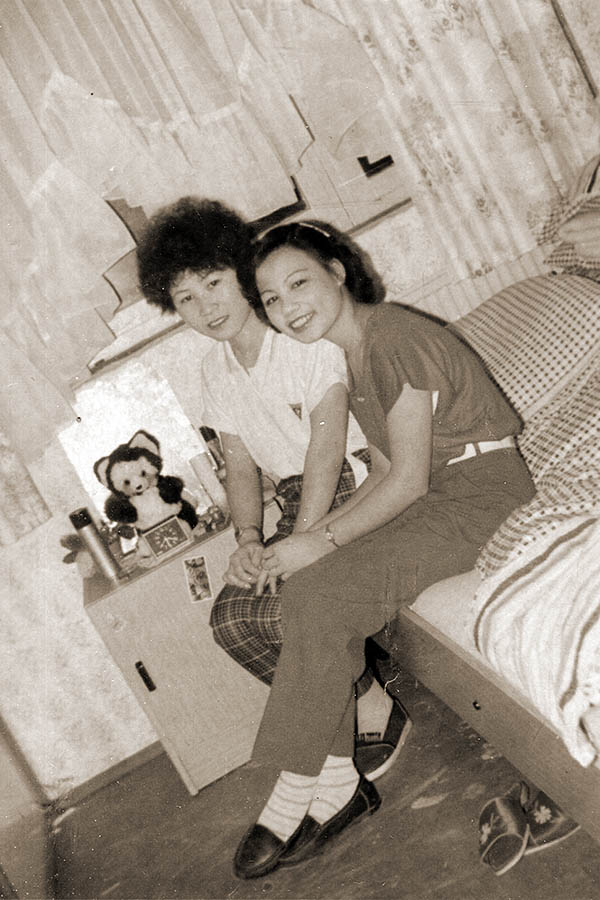Sergio Majope
In June 1986, Sergio Majope arrives in the GDR as a contract worker. He is sent to Zittau in southeastern Saxony to work in the textile industry. At the time of German reunification in October 1990, he is forced to return to Mozambique.
Young love in Zittau
Sergio Majope is born and raised in the Mozambican capital Maputo. After school, he applies for an apprenticeship in the GDR. He is accepted, flies to Berlin in June 1986 and shortly afterwards starts working at the VEB Futterstoffweberei (lining weaving mill) in Zittau. He is accommodated with other Mozambican colleagues in a residential home right there on the plant premises. On weekends, the young men go dancing or organize their own parties in their residential home. Being good dancers, they are popular with the German women in the disco. As a result, there are often fights and trouble with German men. “The men said they had to protect the women, even though these said they didn’t need protection,” Sergio recounts. At the disco, he meets Petra. For three years they are a couple, until Petra leaves for West Germany in 1989.
The girls enjoyed dancing with us.
Sergio Majope, Maputo 2021
Vacation on the Baltic Sea
With Petra, Sergio spends a one-week vacation at a campsite on the Baltic Sea. For the first time he is on a nudist beach. There he is the only person with dark skin — a most uncomfortable situation for him. He doesn’t tell his Mozambican friends about it. “They would have called me crazy,” he explains.
No car, but a motorbike
In the residential home, Sergio Majope shares a room with a Mozambican colleague. Since there are always arguments about the TV program in the common room, they get their own set for their room. Sergio dreams of having his own car. In order to fulfill his wishes, he also works during vacations in a brewery. With that money, he first buys a stereo system and a bike. When he has saved long enough, he upgrades to a motorcycle. At first, the salesman at the store doesn’t believe he can afford a new motorbike. Sergio is forced to put the money in cash on the table before he is allowed to test ride the MZ.
The MZ will accompany Sergio Majope for a long time. In 1990, he takes it with him to Mozambique and repairs it several times until he finally has to sell it for financial reasons.
Parties and outfits
There are also colleagues from Poland working in the plant. Sergio often buys his clothes from them. He complements his outfits with various accessories: an eye patch for the daring pirate look or glasses with window lenses. Elidio, a Mozambican friend from the residential home, usually takes photos with his own camera.
They also invite German colleagues to the parties in the dormitory. “They enjoyed coming,” Sergio recalls, “they wanted to see our culture and taste our food.” Sergio, however, remembers with revulsion the raw fish with vinegar eaten in Germany.
Return
Sergio Majope thoroughly prepares his return. The MZ, the television, the stereo and other purchases are packed into a sea freight container and sent to Maputo.
Like all Mozambican contract workers, Sergio has received only a portion of his wages in the GDR. Up to sixty percent has been withheld and is supposed to be paid to him after his return to Maputo. At the airport, the Mozambican authorities confiscate all of his papers. He could pick them up and would then also receive his money, they say. None of this happens. To this day, the former contract workers from Mozambique are fighting for their wages.[1]
Today, Sergio Majope lives in Maputo.
Credits:
Catarina Simão conducted the interview in Maputo in 2021.
Text: Julia Oelkers
Research and research protocol photos: Catarina Simão, Julia Oelkers
Video edting concept: Julia Oelkers
